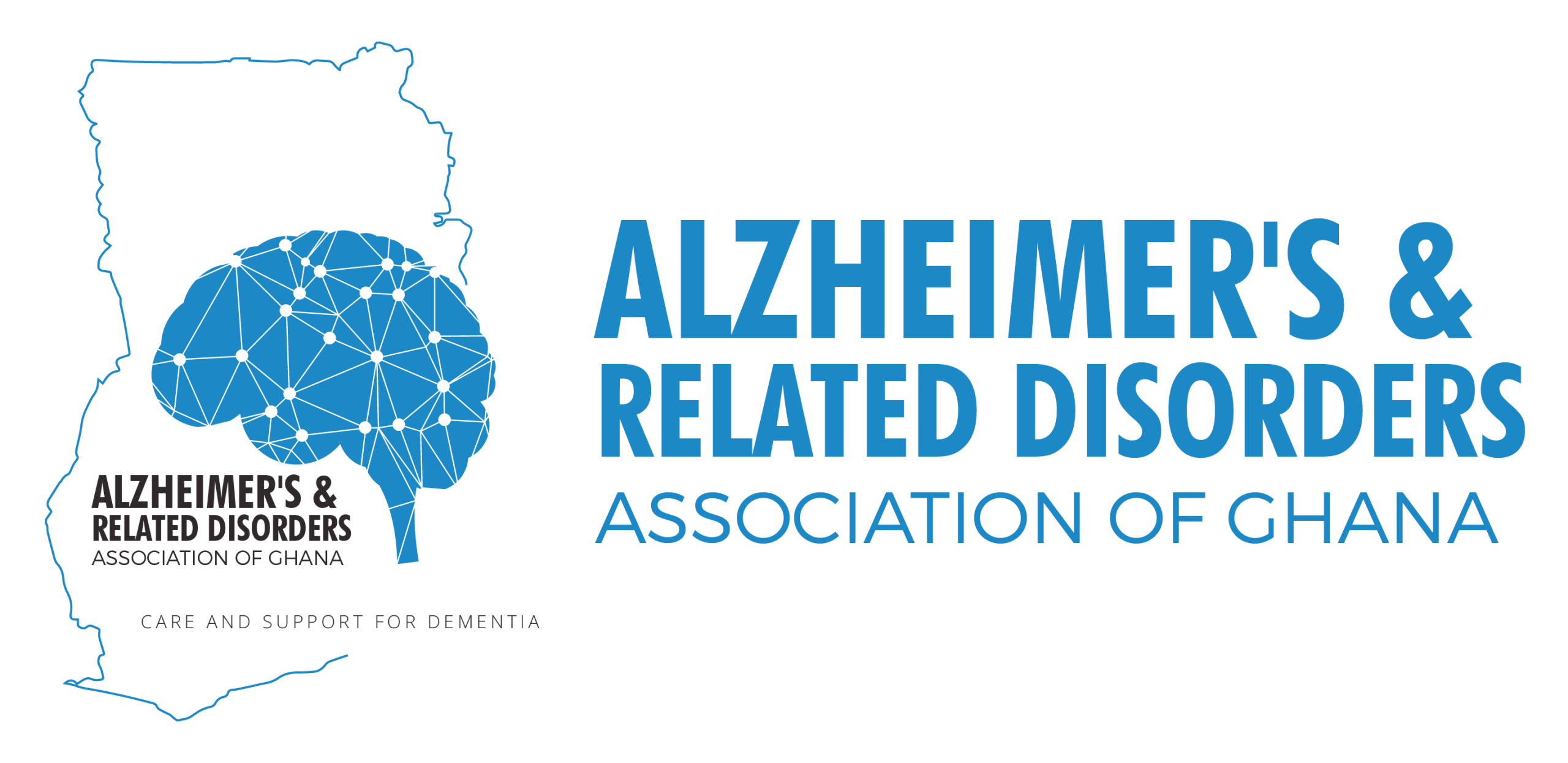What Is Alzheimer's Disease and Dementia?
Alzheimer’s disease is a degenerative brain disorder that slowly destroys memory, thinking skills, and eventually the ability to carry out simple tasks.
- Dementia is not a single disease—it’s a syndrome, or group of symptoms, that affect memory, reasoning, language, and behavior.
- NB: Not all dementia is Alzheimer’s, but all Alzheimer’s involves dementia symptoms.
Main Objectives
- Raising public awareness throughout Ghana, hoping to eliminate the fear caused by Alzheimer’s mental disorder, and the stigma attached to the disease through all available media.
- To support women through training and financial assistance to provide quality care for affected families.
- To secure from Government and non-Governmental sources, better facilities for the care of those affected by dementia.
- To undertake and support research into the causes, prevalence and other aspects of dementia.
- To arrange and conduct training programmes for caregivers and to organize seminars, medical camps and relief work.
- To provide guidance in legal matters to people with dementia and families and to intervene on their behalf wherever or whenever necessary or feasible.
People worldwide are living
with dementia
of cases are
alzheimer's
of cases in ghana
go undiagnosed
Succesfully supported
by ARDAG
Understanding Alzheimer’s: Causes, Signs, and Impact
Alzheimer’s disease is the most common form of dementia, affecting millions worldwide. By recognizing its causes and early warning signs, we can raise awareness, reduce stigma, and support those living with memory loss and cognitive decline.
Brain disorder caused by abnormal protein build up
2. Vascular Dementia :
Results from reduced blood flow from brain
3. Lewy Body Dementia
Triggered by protein deposits
4. Frontotemporal Dementia : Caused by damage to the brain’s frontal and temporal lobes
2. Hard to complete familiar task
3. Changes in mood
4. Misplacing belongings
5. Confusion of time and place
6. Changes in vision
7. Struggling to communicate
8. Poor judgement
9. Social withdrawal
Memory lapses, trouble with planning, and subtle changes in mood or behavior.
2. Moderate Alzheimer’s
Increased confusion, difficulty recognizing people, wandering, and noticeable personality changes.
3. Severe Alzheimer’s
Loss of ability to communicate, perform daily tasks, or recognize loved ones; full-time care needed.
2. Cognitive Stimulation and Therapy
3. Lifestyle and Supportive Care
4. Caregiver Support and Education
PEOPLE AFFECTED BY STIGMA AND SILENCE
Alzheimer’s disease doesn’t just affect memory — it affects dignity, relationships, and access to care. In Ghana and across Africa, stigma and misunderstanding often prevent families from seeking help, leaving many elders isolated, misjudged, or untreated. This is not just a health issue — it’s a human rights concern. Every person living with dementia deserves respect, inclusion, and the right to quality care without shame or discrimination.
Compassionate Care for People Living with Dementia
Alzheimer’s and other forms of dementia affect more than memory — they impact families, emotions, and daily life. In Ghana, caregivers play a vital role in preserving dignity and comfort for those affected. With proper support, training, and community understanding, caregiving becomes a powerful act of love and resilience.
Watch Video
Need Guidance on Dementia Care? Let’s Talk












Caregivers and Caring For Alzheimer's
Why Dementia Patients Need Specialized Care
People living with dementia experience memory loss, confusion, and emotional changes. Without proper care, they may feel isolated, misunderstood, or unsafe. Compassionate caregiving helps preserve dignity, reduce distress, and improve quality of life.
“It’s not just about remembering — it’s about being seen, heard, and respected.”
The Role of Caregivers
Caregivers assist with daily tasks, medication, emotional support, and safety. In Ghana, most caregivers are family members with little formal training, yet they provide round-the-clock care with love and resilience.
“We do it because they’re our mothers, our fathers. But it’s not easy.”
Emotional and Physical Toll
Caregiving can lead to burnout, depression, and physical exhaustion. Many caregivers in Ghana report feeling overwhelmed, especially when support systems are lacking. They need rest, recognition, and resources to continue their work.
“Some days I feel invisible. But I keep going because she needs me.”
What Caregivers Need
Training in dementia care and communication
Access to respite services and support groups
Financial assistance for medical and daily needs
Public awareness to reduce stigma and encourage community support
Cultural Challenges and Stigma
In many communities, dementia is misunderstood or seen as a spiritual issue. This leads to shame, delayed diagnosis, and isolation. Caregivers often face judgment or rejection while trying to do what’s right.
“They said my father was cursed. I knew it was Alzheimer’s.”
Building a Supportive Future
Organizations like ARDAG are working to train caregivers, raise awareness, and advocate for policy change. When caregivers are supported, patients thrive — and communities grow stronger.
“Support the caregiver, and you support the whole family.”

